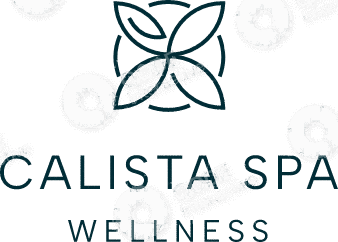Our Restorative Health Approach to Cancer
What is Cancer?
Restoring and maximizing health in cancer requires stepping back and rethinking what cancer actually is. Cancer is not an invader, it’s not a virus, it’s not bacteria. Cancer cells are your cells. They have your DNA. The real question is: what causes a normal, healthy cell to choose to become a cancer cell?
All cancers share common biochemical traits, and nearly all are created by environmental factors, not genetics. Genetic mutations may play a role in about 10% of cases, but it’s biochemistry that predicts 90% of cancers. Across different types - breast, prostate, lung, colon - the underlying shifts in the cellular environment are consistent.
Cancer happens when inflammation, oxidative stress, and membrane damage push a cell past its ability to maintain its functional role within the community of cells around it. A breast cell becomes unable to perform its functions as a breast cell. That cell begins to prioritize its survival to the detriment to the cells around it by adapting, multiplying, evading immune detection, and creating its own fuel supply. It is common for cells to become damaged. The body has mechanisms to destroy damaged cells and replace them with new healthy cells, but that requires that the community of cells surrounding the damaged cell is strong and resilient. When the cellular community is weakened by prodromal biochemical deficiencies, it creates a fertile environment for damaged cells to become cancerous instead of being destroyed and replaced.
But not all cells are equally vulnerable to becoming cancerous. Some tissues almost never become cancerous, like skeletal muscle or heart tissue, because their biochemical environments are uniquely anti-cancerous. This tells us something important: it is the biochemical environment that drives cancer risk. We can learn from the biochemistry of muscle cells. Cancer is not a mystery. The biochemical risk factors of cancer are well studied and documented. Furthermore, advanced biochemical analyses such as BioMetrix BioScan and advanced targeted nutritional interventions such as BioNutrix Nutrition can help identify biochemical risk factors and restore biochemical systems to their optimal operating conditions.
Our approach is to restore the body’s natural environment. Rebuild biochemical stability, remove inflammatory triggers, and support the systems that regulate cellular growth. When the body has the right biochemical tools, it can maintain order. That’s the foundation for becoming cancer-resistant.
Dr. Goodenowe explains the true biochemical nature of cancer — why it develops, how it’s driven by environmental stress, and what it takes to restore order and resistance at the cellular level.
We do not treat MS – we support the body’s health in those living with it. Our approach focuses on identifying and restoring the underlying biological systems that MS affects, particularly those involved in myelination, inflammation, and cellular resilience.
Rather than managing the disease label, we work to restore the functions MS disrupts: movement, cognition, communication, and quality of life. This is not passive care – it’s a biologically guided, client-empowered process of recovery.
The Biochemistry of MS
From a biochemical perspective, MS is a breakdown of membrane systems - especially the white matter myelin that insulates neurons and the lipid pathways that maintain it. This breakdown includes:
• Plasmalogen depletion, especially omega-9 plasmalogens critical to white matter integrity
• Impaired mitochondrial and peroxisomal function, reducing cellular energy and repair capacity
• Inflammatory and oxidative stress cascades, triggered by membrane instability
• Neurological disconnection, due to compromised neurotransmission and axonal signaling
MS isn’t caused by one single problem it’s a cascade of dysfunction, and rebuilding begins with restoring what’s missing at the molecular level.
Symptoms are real – but they’re not the starting point. Restoration starts with the core systems that make function possible.
How we treat health in MS
We dont' treat the disease. We treat the health affected by it. That means:
- Rebuilding membrane structure with lipid-based nutrients
- Supporting energy production and antioxidant capacity
- Measuring functional outcomes (not just imaging)
- Guiding each person based on their own biochemistry
The Truth About Multiple Sclerosis
FAQ
Do you diagnose or treat specific diseases?
No. We don’t treat or diagnose disease. Instead, we support the body’s health in the context of specific conditions like ALS, Alzheimer’s, Parkinson’s, MS, and others, using science-backed tools to optimize function and resilience.
What makes your approach different?
We combine personalized biochemical data, advanced imaging, and functional assessments with real-world strategies and a strong focus on education. Clients are active participants in a guided, measurable process of restoration.
Is this program right for me or my loved one?
Our programs are designed for individuals seeking a proactive, science-based path to improve quality of life and function—whether newly diagnosed or looking to maintain independence. We work with caregivers and support systems as well.
Do I need to travel to participate?
We offer a 4-month flagship program that includes 3 months on-site in Moose Jaw, Saskatchewan, plus 1 month of remote support. We also offer a condensed 1-month on-site program and 1 month remote options.
How do I get started?
You can begin by exploring programs by condition, or book a call with our team to learn more.

